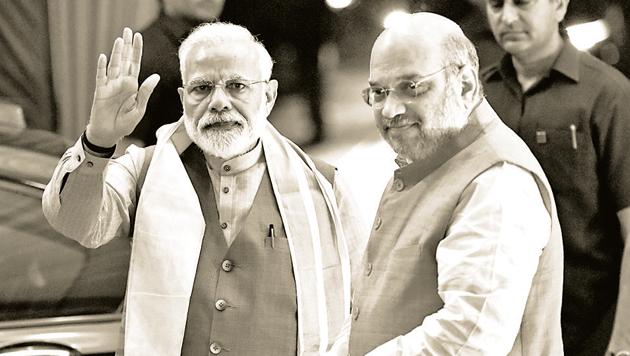Kashmir: The decision is a win-win for everyone
The advisory to various state governments to ensure the safety and security of the residents of Jammu and Kashmir is a step in the right direction. It must now be followed up by a genuine outreach to the people of the state
The speculation over Jammu and Kashmir is over with the announcement of revocation of Article 370, and the division of the state into two Union Territories. To some, it was evident that the events of the past few days had less to do with an enhanced security threat, but were carried out with a political objective in mind. The discussions over Article 370 has two sides. This subject will now be hotly debated in Parliament, and perhaps, in the Supreme Court. However, the Union government has taken a decision, and the immediate task is to deal with the challenges that this decision will bring.

The first, and most obvious result could be a worsening of the law and order situation in the Kashmir Valley. An immediate parallel could be drawn with the situation that erupted following the killing of militant Burhan Wani in July 2016. However, the difference with 2016 is that the government and security forces are much better prepared today to deal with any disturbance. The scale of the protests in 2016 came as a surprise to the security forces, but the recent pre-emptive deployment of additional forces into Jammu and Kashmir enables the state government to deal appropriately with any situation.
If large-scale protests do erupt, how they are handled will be extremely important. Obviously, a breakdown of law and order cannot be accepted, but the response of the security forces must be measured. Large-scale deaths and injuries to civilians will leave long-term scars, and will make conflict resolution more difficult.
Pakistan can be expected to fish actively in the troubled waters of Kashmir. Buoyed by the recent statements of United States President Donald Trump on mediation, Pakistan will attempt to internationalise the issue of Kashmir. I do not see any great success in Pakistan’s diplomatic efforts, as the world is mostly tired of Islamabad’s duplicity on terrorism, and sees Kashmir as an internal matter of India. Pakistan will undoubtedly step up its support to terror activities in Kashmir. This is perhaps the last chance it has of showing its backing to the cause of azadi (freedom) in Kashmir. If Pakistan does nothing, it could lose credibility not only in Kashmir, but also among terror groups such as the Lashkar-e-Taiba and the Jaish-e-Mohammad that are virtually an arm of the Inter-Services Intelligence.
However, there are limits to Pakistan’s response. Hobbled by international pressure and a dire financial situation, Pakistan needs to keep its actions calibrated to ensure that the situation does not escalate to a conventional conflict. The Indian Army’s deployment along the Line of Control in Jammu and Kashmir is extremely robust, and will not allow large-scale infiltration. Notwithstanding this, a major terror incident in Kashmir cannot be ruled out, and it will primarily be the responsibility of intelligence agencies to ensure that there is no repeat of a Pulwama-type attack.
It is also essential to not look at tackling the situation purely through a security approach. If the government’s action aims to find a resolution to the Kashmir conflict, it has to take the local population into confidence. This is perhaps the most difficult task as past activities of the government have only increased suspicion and alienation among the Kashmiris. As long as this alienation is not addressed, long-term solutions will not be forthcoming.
In the military, one essential component of a counter-insurgency campaign is winning the “battle of the narrative”. It is the success of our communication strategy that will turn the youth away from the path of extremism towards the benefits of supporting the government’s policies. This aspect has not received enough attention while dealing with Kashmir.
It must also be understood that narratives are more than verbal messages; they also need visible actions to show the sincerity of the political leadership in finding a just solution. The decision of the government must not be painted in terms of victory or defeat, but as a win-win for everyone. The advisory to various state governments to ensure the safety and security of the residents of Jammu and Kashmir is a step in the right direction. It must now be followed up by a genuine outreach to the people of the state.
The revocation of Article 370 is undoubtedly a momentous step. The strategy that the government adopts to handle its fall out will define the success of this move.
Lt General (Retd) DS Hooda is the former General Officer Commanding-in-chief, Northern Command
The views expressed are personal






